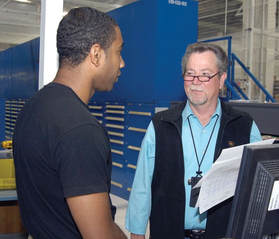
Studying people who cleaned hospital rooms, Amy Wrzesniewski (Yale) and Jane Dutton (Michigan) found two groups: one did things by the book, the other added tasks or made other adjustments to their jobs that made their jobs as hospital cleaners more meaningful. Wrzesniewski & Dutton (2001) coined the term “job crafting”—“the process of employees redefining and reimagining their job designs in personally meaningful ways.” For nearly two decades they have led research on job crafting.
So how do people alter their jobs? Here is a summary in a nutshell:.
- Changing tasks: adding tasks, emphasizing some tasks over others, changing how a task is done.
- Changing relationships: building new relationships, reframing an existing relationship, recrafting a relationship by helping or supporting another.
- Changing perceptions: expanding perceptions (broaden view of the job); focusing perception on most meaningful aspects of the job, linking or associating separate activities with each other to make more meaningful.

1. Early in my professional career I did work analyses across multiple locations. I learned quickly that there were significant differences between tasks and responsibilities in job descriptions and what people actually did. As Wrzesniewski and Dutton found, some people adjusted to their positions by emphasizing certain aspects over others. Intentionally or not, they made their jobs more interesting. Many times they were not aware of how they had changed their jobs.
2. My guess is that individual differences play a large role here. Some people are going to find ways to make their jobs more meaningful. Others are just going to do what they are assigned to do, the way they were trained to do it. We craft our jobs by the choices we make, and the choices we are allowed to make.
3. Leadership can play a role. While many employees will shape their jobs to add meaning, others will not unless it is made clear by managers that they do have some flexibility. Also, people doing the same job may do the job differently. Meetings where this information is shared may improve performance for others – or avert potential problems. Job crafting would also benefit by beneficiary contact.
4. I have no ideas why the Google search results for worldwide and for the U.S. vary. I expected to see a positive trend for both. Job crafting can be done in many different ways. That flexibility and the individual nature of reshaping one’s job would suggest job crafting should be a topic in which leaders are well versed.
Berg, J. M., Dutton, J. E., & Wrzesniewski, A. (2013). Job crafting and meaningful work. In B. J. Dik, Z. S. Byrne, & M. F. Steiger (Eds.), Purpose and meaning in the workplace (pp. 81-104. Washington, DC: American Psychological Association.
Wrzesniewski, A., Berg, J. M., & Dutton, J. E. (2010). Managing yourself: Turn the job you have into the job you want. Harvard Business Review, 88(6), 114-117.
Wrzesniewski, A., & Dutton, J. E. (2001). Crafting a job: Revisioning employees as active crafters of their work. Academy of Management Review, 26(2), 179-201.
Image of trends for these leadership approaches made using Google Trends™ tool. Google and the Google logo are registered trademarks of Google Inc., used with permission.
https://trends.google.com/trends/explore?date=all&q=job%20crafting
https://trends.google.com/trends/explore?date=all&geo=US&q=job%20crafting
"Unsung Hero" by Margo Wright. USAF photo. Obtained from http://www.tinker.af.mil/News/Photos/igphoto/2000458057/
Public domain. https://guides.library.upenn.edu/c.php?g=475958&p=3255326
© John Ballard, PhD, 2018. All rights reserved.
Author of Decoding the Workplace, BEST CAREER BOOK Next Generation Indie Book Awards 2016.
_________________________
Decoding the Workplace “deals with principles and practices that are timeless – how to relate to others in the workplace, the psychology of groups and teams, the use (and abuse) of power and influence, and how to manage stress. Is this a must-have for managers and would-be managers? Yes.” Ron Riggio, Book Review, Academy of Management Learning & Education, in-press.


 RSS Feed
RSS Feed